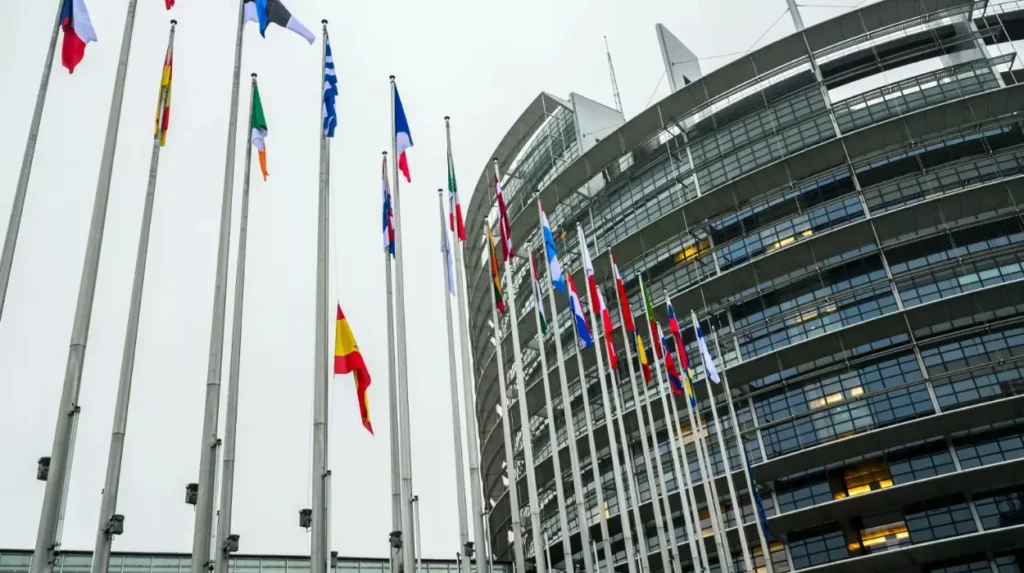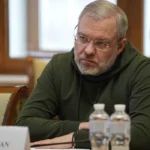The defence sector has dramatically ramped up its lobbying activities within the European Union Parliament, reflecting the continent’s growing focus on security and military preparedness. According to new data compiled by Transparency International EU, lobbyists representing consultancy firms, trade associations, and defence companies arranged 197 meetings with Members of the European Parliament (MEPs) and EU officials between June 2024 and mid-June 2025. This figure marks a sharp increase compared to only 78 meetings recorded over the entire previous five-year period.
This surge in lobbying activity coincides with the European Union’s intensified efforts to bolster its defence capabilities, driven largely by geopolitical tensions and the ongoing war in Ukraine. The conflict has exposed vulnerabilities in Europe’s security architecture, prompting policymakers to prioritize defence investments and industrial readiness.
“Defence has now become a priority for the European Union, which automatically means that there will be a lot of lobbying on this issue, both within the EU Commission and, most certainly, within the European Parliament,”
said Raphaël Kergueno, senior policy officer at Transparency International EU, highlighting the direct correlation between political priorities and lobbying pressure.
Germany Leads in Defence Lobbying Engagement
Among EU member states, German MEPs have been the most engaged in defence-related discussions, participating in 55 meetings with lobbyists over the past year. Bulgaria followed with 19 meetings, Spain with 15, Finland with 10, Italy and Denmark with 9 each, the Czech Republic with 7, and Poland and Latvia with 6 each. This distribution reflects both the geopolitical interests and industrial stakes of these countries in shaping Europe’s defence agenda.
The increased lobbying presence is also mirrored by a substantial rise in defence companies’ budgets allocated to influence EU policymaking. A Politico investigation revealed that the lobbying budgets of Europe’s largest defence firms surged by nearly 40% between 2022 and 2023. This growth is attributed to the urgent need to shape the EU’s emerging security framework and secure funding streams.
Defence Industry’s Strategic Push for Funding and Regulatory Ease
The lobbying efforts are largely focused on influencing key EU instruments such as the European Defence Fund (EDF) and the Act in Support of Ammunition Production (ASAP). These initiatives aim to accelerate the production and delivery of military equipment and ammunition, particularly in support of Ukraine’s defence needs.
Major defence contractors including Airbus, Leonardo, Rheinmetall, and Thales have been highly active in Brussels, engaging with both the European Commission and Parliament to advocate for streamlined funding procedures and relaxed regulatory requirements. Their goal is to ensure a more agile and responsive defence industrial base capable of meeting current and future security challenges.
The European Commission is also advancing legislative proposals to simplify and speed up defence investments. The recently proposed Defence Readiness Omnibus aims to reduce bureaucratic red tape, improve access to finance, and clarify regulations to better accommodate defence needs. This package has been developed with input from industry stakeholders and reflects the EU’s commitment to strengthening its strategic autonomy in defence.
MEPs Advocate for a More Ambitious European Defence Industry Programme
In April 2025, the European Parliament’s Committees on Industry, Research and Energy and on Security and Defence adopted a position supporting the creation of a European Defence Industry Programme (EDIP). This programme is designed to boost the European Defence Technological and Industrial Base (EDTIB), enhance joint procurement, and increase financial contributions from member states.
MEPs emphasized the need to improve the supply and stockpiling of weapons, ammunition, and other crisis-relevant products, as well as to reduce production lead times. The programme also aims to support Ukraine and strengthen Europe’s overall defence capabilities.
Marie-Agnes Strack-Zimmermann, Chair of the Committee on Security and Defence, stated,
“Our position on the EDIP sends a strong message to the Council to finalise its own position in order to start interinstitutional negotiations. The European Parliament will insist on establishing a strong regulation that will incentivise EU member states to boost joint procurement in order to build common European defence capabilities – stronger, strategic, efficient and united.”
Raphaël Glucksmann, co-rapporteur from the Committee on Security and Defence, added,
“Today, Parliament has come together with an unprecedented sense of urgency and purpose. In record time, we’ve forged a broad and determined majority in support of strengthening Europe’s defence industrial base – because this is no longer just an option, it’s a strategic imperative.”
The EDIP proposal, backed by a large majority in the Parliament, is now set to enter negotiations with the Council, signaling a critical step toward enhanced European defence integration.
Concerns Over Corporate Influence and Transparency
Despite widespread political support for strengthening Europe’s defence capabilities, watchdog groups and transparency advocates have expressed concerns about the growing influence of defence companies on EU policymaking. The rapid increase in lobbying activities raises questions about the balance between legitimate industry input and disproportionate corporate sway over political priorities.
Critics warn that the defence industry’s lobbying could distort budgetary decisions and undermine democratic oversight, especially given the sensitive nature of security policy. Transparency International EU and other organizations have called for stricter transparency rules to cover lobbying in sensitive sectors such as defence, cybersecurity, and artificial intelligence.
A particular point of contention is the low level of public reporting on meetings between EU officials and defence sector lobbyists. This opacity complicates efforts to monitor influence and ensure accountability in the policymaking process.
Defence Industry’s Multi-Channel Lobbying Strategy
European defence companies employ a variety of lobbying methods to advance their interests. Many maintain dedicated offices in Brussels staffed with lobbyists who have direct access to MEPs and Commission officials. Additionally, companies often engage consultancies and intermediaries to represent their positions.
Industry associations such as the Aerospace, Security and Defence Industries Association of Europe (ASD) and the European Organization for Security (EOS) play a pivotal role in coordinating collective lobbying efforts. These groups advocate on behalf of the sector and maintain close ties with EU institutions.
Defence and security fairs, including events like DSEI, Eurosatory, and the Paris Air Show, serve as important platforms for informal engagement between industry representatives and policymakers. Conferences and think tank gatherings further facilitate networking and policy discussions, strengthening the industry’s influence within the EU.
The Geopolitical Context Driving Lobbying Intensification
The intensification of lobbying coincides with a broader geopolitical shift in Europe’s security environment. Russia’s invasion of Ukraine in February 2022 drastically altered the continent’s defence priorities, exposing the need for greater military self-reliance and rapid capability development.
With traditional allies like the United States recalibrating their support, the European Commission and Parliament are under pressure to develop a more robust and autonomous defence industrial base. This strategic imperative has created fertile ground for defence companies to assert their influence and shape the EU’s security policies.
Commission President Ursula von der Leyen has underscored the scale of the challenge, estimating that the EU requires an additional €500 billion in defence investments over the coming decade. The European Parliament’s push for stronger defence programmes and streamlined funding mechanisms reflects this urgent need.
Balancing Industry Influence and Democratic Oversight
The defence sector’s intensified lobbying efforts in the EU Parliament illustrate the complex interplay between industry interests, political priorities, and security imperatives. While the push to strengthen Europe’s defence capabilities is widely supported, the growing influence of defence companies demands vigilant oversight to safeguard transparency and democratic accountability.
As the European Parliament and Council enter negotiations on key defence legislation, the challenge will be to balance the legitimate input of industry stakeholders with the public interest. Ensuring openness in lobbying activities and maintaining rigorous scrutiny will be essential to building a defence policy that is both effective and democratically legitimate.







